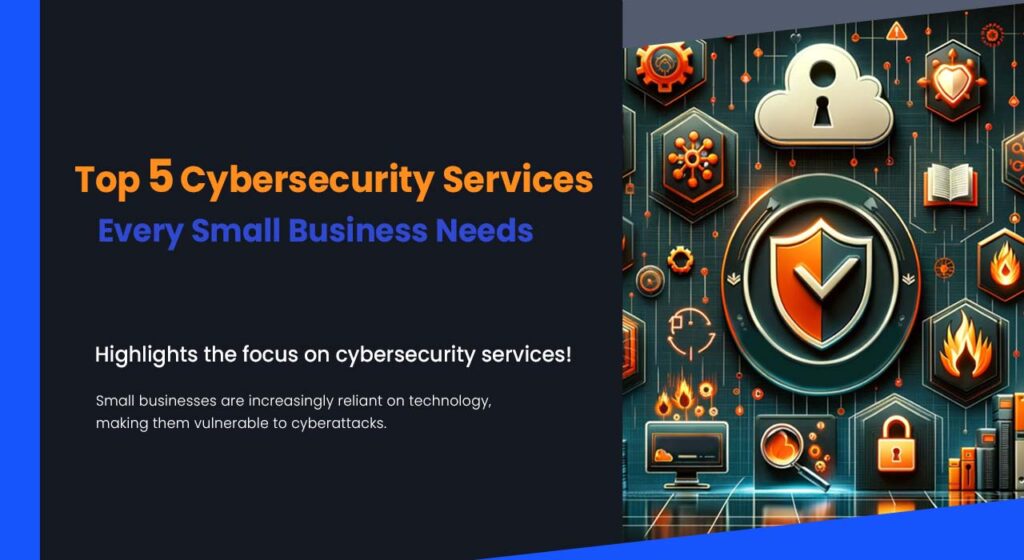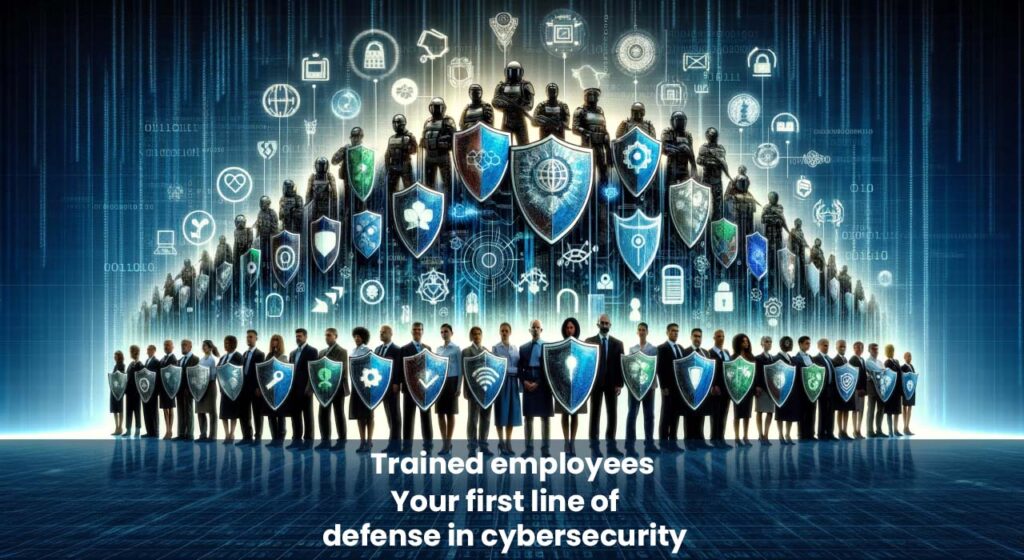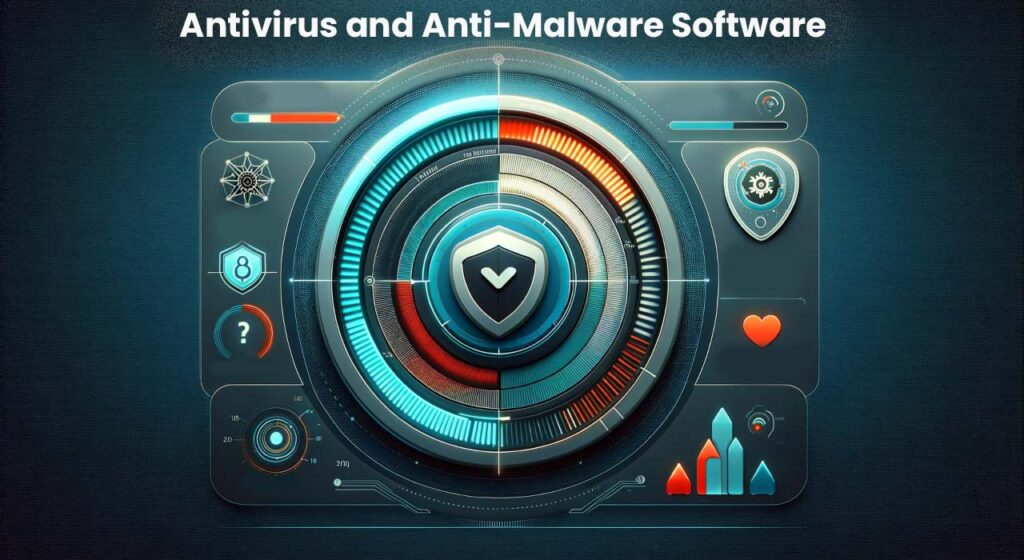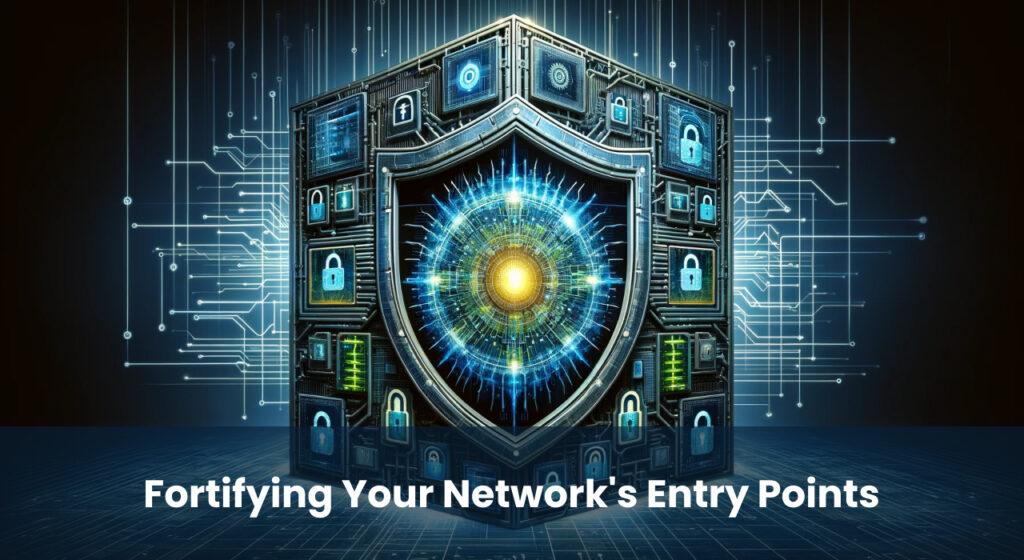
In today’s digital age, small businesses are no longer exempt from the ever-evolving threats of cybercrime. Their increasing reliance on technology, from storing customer data to conducting online transactions, makes them vulnerable to a growing landscape of malicious attacks.
Data breaches, malware infections, and phishing scams are just a few examples of the dangers lurking online, and the consequences for small businesses can be devastating. Financial losses, operational disruptions, and reputational damage can cripple a small business, potentially leading to permanent closure.
Navigating the complex world of cybersecurity can be overwhelming, especially for small businesses with limited resources. However, taking proactive steps to safeguard your digital assets is crucial for ensuring your business thrives in the face of evolving threats.
This article serves as a roadmap, guiding you through the top 5 essential cybersecurity services every small business needs to consider. By implementing these services, you can significantly strengthen your defenses and build a more secure foundation for your business.
The Crippling Cost of Cybercrime for Small Businesses
While the image of cyberattacks crippling multinational corporations may be prevalent, the reality is that small businesses are equally, if not more, susceptible to the financial devastation of cybercrime.
According to the Ponemon Institute’s 2023 Global State of Endpoint Security Report, the average cost of a data breach for a small business in the United States is a staggering $2.3 million. This hefty price tag encompasses not just the immediate costs of recovering from the attack, but also the long-term consequences that can cripple a small business.
These consequences include:
- Direct financial losses: Recovering stolen data, repairing compromised systems, and notifying customers of the breach can incur significant expenses.
- Downtime: Cyberattacks can disrupt business operations for extended periods, leading to lost revenue and productivity.
- Reputational damage: A data breach can seriously erode customer trust, making it difficult to attract and retain customers in the future.
A real-world example highlights the devastating impact of cybercrime on small businesses. In 2021, a ransomware attack forced a small accounting firm out of business after it encrypted their critical financial data. The firm was unable to recover the data and lost access to essential information needed to operate.
These statistics and examples showcase the harsh reality: cybercrime is not just a concern for large corporations, it poses a significant threat to the very existence of small businesses. By implementing robust cybersecurity measures, small businesses can significantly mitigate the risk of falling victim to these costly attacks and ensure their continued success in the digital landscape.
Link to Ponemon Institute website: (https://www.ponemon.org/)
The financial consequences of a cyberattack can be devastating for a small business. To mitigate these risks, it is crucial to choose the right cybersecurity solution that can effectively protect your data and systems. Our guide, Navigating the Cybersecurity Maze: Choosing the Right Solution for Your Small Business, provides a comprehensive overview of the different types of cybersecurity solutions available and helps you select the most suitable option for your business needs.
Empower Employees: Your Cybersecurity Frontline

Human error is often the weakest link in the cybersecurity chain. According to Verizon’s 2023 Data Breach Investigations Report, 82% of data breaches involved a human element. This highlights the crucial role of employees in recognizing and preventing cyberattacks.
Security awareness training empowers employees to become the first line of defense against cybersecurity threats. It equips them with the knowledge and skills to:
- Identify and avoid phishing emails: These deceptive emails often appear legitimate, attempting to trick users into revealing sensitive information like login credentials.
- Recognize social engineering tactics: These techniques manipulate human emotions or psychology to gain access to confidential information or systems.
- Understand cybersecurity best practices: This includes implementing strong passwords, following safe browsing habits, and reporting suspicious activity to IT personnel.
Training options:
Several types of security awareness training are available for small businesses:
- Online courses: These offer a cost-effective and flexible option, allowing employees to learn at their own pace.
- In-person workshops: These provide a more interactive learning experience and facilitate better engagement with trainers.
Gamified training: This approach utilizes gamification elements to make learning engaging and memorable.
Benefits of training:
Investing in security awareness training offers numerous benefits for small businesses, including:
- Reduced risk of cyberattacks: Empowered employees are less likely to fall victim to phishing attacks and social engineering tactics.
- Improved data security: Training fosters employee vigilance in protecting sensitive information and adhering to security protocols.
Enhanced compliance: Many regulations require organizations to train employees on cybersecurity best practices.
Finding affordable solutions:
Several resources can help small businesses find affordable security awareness training options:
- SANS Institute: https://www.sans.org/cyberaces/ – Offers free and paid cybersecurity resources, including awareness training materials.
- National Institute of Standards and Technology (NIST): https://www.nist.gov/cyberframework – Provides a cybersecurity framework with recommendations for security awareness training.
- Non-profit organizations: Many non-profit organizations offer free or low-cost cybersecurity training programs specifically designed for small businesses.
By investing in security awareness training, small businesses can empower their employees to be active participants in safeguarding the organization’s digital assets. This proactive approach forms a critical foundation for building a robust cybersecurity posture.
Antivirus & Anti-Malware Software: Building a Digital Shield
Antivirus and anti-malware software are essential tools in any cybersecurity arsenal. These programs act as the first line of defense against malicious software (malware), including viruses, worms, and trojans. They work by:

- Scanning files and applications: They identify and quarantine potentially harmful software before it can infect your system.
- Providing real-time protection: They constantly monitor system activity and block suspicious attempts to access or modify data.
Choosing the right solution:
Several types of antivirus and anti-malware software are available, each with varying features and pricing models:
- Free solutions: These offer basic protection and may be sufficient for low-risk environments.
- Paid solutions: These typically offer more advanced features like real-time protection, email filtering, and additional security layers.
Choosing a reputable vendor is crucial. Look for established companies with a proven track record of providing reliable security solutions. Consider factors like the software’s compatibility with your operating system, ease of use, and ongoing updates to ensure optimal protection against evolving threats.
While free options offer a starting point, many small businesses choose paid solutions for their comprehensive protection and additional features. Ultimately, the best option is to assess your individual needs and budget to select a solution that effectively shields your organization from the ever-present threat of malware.
Firewalls & Network Security: Guarding the Digital Gateway
Firewalls act as gatekeepers, controlling the flow of network traffic entering and leaving your business network. They play a crucial role in:

- Filtering incoming traffic: Only authorized traffic, based on predefined rules, is allowed access, while suspicious or malicious traffic is blocked.
- Preventing unauthorized access: Firewalls act as a barrier, making it difficult for unauthorized users or devices to gain access to your network and sensitive data.
Firewalls come in different varieties, each providing a distinct degree of security:
- Hardware firewalls: These dedicated devices physically connect to your network and filter traffic at the hardware level.
- Software firewalls: These programs reside on individual devices within your network, providing additional filtering and protection.
- Cloud-based firewalls: These offer a centralized solution, managing network security for multiple devices and locations.
Choosing the right firewall:
The appropriate firewall solution depends on your specific needs and network complexity. Small businesses with basic needs might find software firewalls sufficient, while others may benefit from a combination of hardware and software solutions.
It’s important to remember that firewalls are just one component of a comprehensive network security strategy. Additional services, such as intrusion detection/prevention systems (IDS/IPS) and vulnerability scanning, might be necessary depending on the sensitivity of your data and the complexity of your network infrastructure.
By implementing a layered approach to network security, you can significantly strengthen your defenses and create a more secure environment for your business operations.
Data Backup and Recovery: The Ultimate Safety Net

Conclusion & Charting Your Course Forward
Imagine losing all your critical business data due to a cyberattack, hardware failure, or natural disaster. The consequences can be catastrophic, leading to operational disruptions, lost revenue, and even permanent closure.
This is where data backup and recovery becomes essential. Regular backups create copies of your data, ensuring you have a safety net in case of unforeseen circumstances.
Data backup methods:
- Cloud storage: This offers a convenient and secure way to store your backups remotely, eliminating the risk of physical damage or loss.
- Local backups: This involves storing backups on external hard drives or other local storage devices, providing more direct control over your data.
Choosing the right approach:
The optimal data backup method often involves a combination of both cloud and local storage. Cloud backups offer readily accessible copies in case of physical disasters, while local backups provide faster recovery options for everyday situations like accidental deletions.
Testing your backups is crucial. Regularly performing test restores ensures your backups are functional and readily accessible when needed. A backup that cannot be restored is essentially useless during a critical situation.
By implementing a robust data backup and recovery strategy, you can safeguard your business from unforeseen data loss and ensure a swift recovery in the face of potential disruptions. Remember, your data is the lifeblood of your business, and protecting it should be a top priority.
Managed Security Services Provider: A Partner in Defense
Managing cybersecurity in today’s complex digital landscape can be overwhelming, especially for small businesses with limited internal resources and expertise. This is where Managed Security Services Providers (MSSPs) come into play.

An MSSP acts as an extension of your in-house security team, offering several key benefits:
- Comprehensive security monitoring: MSSPs utilize sophisticated tools and expertise to continuously monitor your network for suspicious activity, potential threats, and vulnerabilities.
- Advanced threat detection: Their specialized knowledge and tools allow them to identify even sophisticated cyberattacks in real-time, enabling swift mitigation measures.
- Incident response: In the event of a security breach, MSSPs provide immediate assistance, containing the threat, minimizing damage, and facilitating recovery.
Benefits for small businesses:
Outsourcing security to an MSSP offers several advantages for small businesses:
- Cost-effective solution: Hiring a full-time security team can be expensive. MSSPs offer a cost-effective alternative, providing access to expertise and advanced tools without significant upfront investments.
- Access to expertise: Small businesses often lack the in-house knowledge and experience to manage complex security threats. MSSPs bring the necessary expertise to address evolving security challenges.
- 24/7 monitoring and support: MSSPs provide round-the-clock monitoring and support, ensuring your network is protected even during off-hours or unexpected situations.
Choosing an MSSP:
Different MSSPs offer a range of services, catering to various needs and budgets. When selecting an MSSP, consider factors like:
- Security expertise: Ensure the MSSP has experience in your industry and possesses the necessary skills to address your specific threats.
- Services offered: Align their service offerings with your security requirements, ensuring they can address your critical needs.
- Reputation and track record: Choose a reputable provider with a proven track record of success in protecting businesses like yours.
By partnering with a reliable MSSP, small businesses can gain access to advanced security expertise, improve their overall threat detection and response capabilities, and build a more secure environment for their operations.
Boosting Cybersecurity Measures
While the services mentioned above form a robust foundation for your cybersecurity strategy, additional measures can further enhance your security posture:
1. Cybersecurity Policy
Developing a comprehensive cybersecurity policy is crucial. This document outlines your organization’s commitment to data security, defines acceptable security practices for employees, and establishes protocols for handling potential security incidents.
A well-defined policy clarifies:
- Data security measures: This includes how sensitive information is handled, stored, and accessed.
- Access controls: This specifies who has access to specific data and systems, based on the principle of least privilege.
- Incident response procedures: This outlines how to identify, report, contain, and recover from security incidents.
Having a documented policy ensures consistent security practices throughout the organization and facilitates smoother incident response during critical situations.
2. Encryption
Encryption is a vital tool for protecting sensitive information like customer data, financial records, and intellectual property. It scrambles data into an unreadable format, making it inaccessible to unauthorized individuals even if intercepted.
Implementing encryption for confidential data adds an extra layer of security, mitigating the risks associated with data breaches or unauthorized access attempts.
3. Staying Updated
The cyber threat landscape is constantly evolving, with new vulnerabilities and attack tactics emerging regularly. To maintain effective defenses, it’s crucial to:
- Stay informed: Regularly update your knowledge of the latest cyber threats and vulnerabilities through trustworthy resources like cybersecurity news publications and industry reports.
- Patch your systems: Promptly install software updates and security patches provided by software vendors to address identified vulnerabilities and keep your systems protected.
- Conduct security awareness training: Regularly refresh employee training on best practices for identifying and mitigating cyber threats, ensuring they remain vigilant against evolving tactics.
By implementing these additional considerations alongside the recommended services, small businesses can create a comprehensive and multifaceted approach to cybersecurity, significantly reducing the risk of falling victim to cyberattacks and safeguarding their valuable assets.
Building a Secure Future for Your Business
cybersecurity is no longer an optional expense for small businesses. The ever-growing threat landscape, coupled with the potential for devastating consequences, makes implementing essential cybersecurity services a critical investment.
This article has explored the top 5 essential cybersecurity services every small business needs to consider:
- Security Awareness Training: empowers employees to be the first line of defense against cyberattacks.
- Antivirus and Anti-Malware Software: acts as a shield against malicious software and viruses.
- Firewalls and Network Security: control network traffic and prevent unauthorized access.
- Data Backup and Recovery: ensures a safety net in case of data loss due to various threats.
- Consider partnering with an MSSP for comprehensive security solutions: They offer continuous monitoring, advanced threat detection capabilities, and assistance in handling security incidents.
By implementing these services and taking additional measures like developing a cybersecurity policy, adopting encryption, and staying informed, small businesses can significantly bolster their defenses, mitigate cyber risks, and ensure a more secure future for their operations.
Don’t wait until it’s too late. Take action today and explore the recommended services to protect your business from the ever-present threat of cyberattacks and safeguard your valuable assets. Remember, a proactive approach to cybersecurity is essential for thriving in the digital world.
Categorized in:
Comments